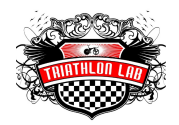Life With Water
"Nothing is more terrible than activity
without insight"
I didn't learn how to swim until 1997. I was 29 years old. Since then I've become a pretty darn good swimmer and I mentioned this recently to a group at an ocean swim clinic. The response was more than I expected and it was suggested to me that I share the tale. Let me first explain how bad it really was!
My Grandmother, Gertrude, was so afraid of the water that she took only baths. She refused to shower because she was scared to have water in her face. That kind of fear can really affect a child, I took her lead and developed some deeply rooted water terror early on. My older brother, who often tired of my inadequacies, took it upon himself to teach me to swim by throwing me into the deep end of our home town pool. The panicked doggie paddle that I used to survive that incident at age 6 wasn't to different from the stroke I used nearly 20 years later in the 1996 Santa Monica sprint race - my first triathlon. It all had to change and in January of 1997 I decided I wanted to take command of the water. I probably should have called a family therapist but instead I called the YMCA in the Pacific Palisades.
My first day at masters was brutal. I was placed in lane one (their slowest) along with a septuagenarian and woman deep in her third trimester. I had a hard time keeping up with their pace. It didn't matter if we were to swim a 50 or a 100 or set of consecutive laps - I had to stop after every length and wait for my heart rate to drop below 205 before I could go on. It took some time for me to understand what it takes to swim well, but that comprehension is what leads to good technique and good technique is what makes one fast.
In every good athlete's past are certain names, specific times or big milestones that mark development. Some of those that haunt my brief swimming history include
Paul Henne. Paul's is a swim coach who, early on, told me "Ian, you have to learn to be able to swim from one end of the pool to the other as slowly as you could walk". That really struck a cord with me. I was so busy trying to swim "hard" that I hadn't considered the alternative: swimming easy. Swimming easy is the key to good swimming - learn what it takes to swim slowly and calmly and you will develop what it takes to swim fast.
Another is Will Douglas, Will is a swim coach who was fanatical about "stretching it out". He was the first to wake me up to getting the body as long as possible. I sailed a bit as a teen and I knew that the fastest boat had the longest hull - so his words rang true, speed comes from reaching, rolling and do everything one can to get long.
Scott Tinley added to that element when he wrote on my schedule one week "DPS". It took me a days and days of phone calls to get him to elaborate and explain that DPS meant Distance Per Stroke. That was the first time I counted my strokes per 25 yards. The logical goal is to be able to swim a decent time (ie. not too far off your normal pace) and swim it with fewer strokes. That yields greater efficiency.
Terry Laughlin made a huge impact when I attended his Total Immersion camp. Never had so much attention be put to me about swimming on ones side. For hours at that camp I floated on my side without swimming a stroke. I kicked hundreds of yards that weekend and not one of them was flat on my stomach. Terry taught me about the power stored in my hips and how to access speed by timing the movement of the hips from one side to the other. It changed everything I was doing and I haven't kicked with a board since.
Escape From Alcatraz June '97 was a breakthrough. I had moved up to lane 3 or 4 in my masters group by swimming three days a week and demanding the attention of the coach everyday. I felt like I could make the swim from "The Rock" to Crissy Field. I exited the water with other athletes that I knew to be fast than I. That swim gave me such confidence that when I returned to masters I dropped into lane 6 (their fastest) and worked my ass off to hold on to the time standards that they swam.
Mike & Rob's August '97 was a race that had me shaking in my boots. The race was on a Sunday and during the week prior a huge swell was hammering the shores of Southern California. My swimming had improved but the surf still terrified me. I went to see Will Douglas while he was guarding on State Beach in Santa Monica. He took his phone off the hook in his tower and we approached the shore break that was well over head and powerful. Will showed me how to dive to the bottom, grab sand and pull myself out the back of the wave. After a couple of ins and outs I had gain confidence because I had survived and felt good about that. I still had trepidation as we arrived at the race site. I parked and ran across the beach to check the surf. It was dead flat - Lake Pacific. It made me think of what Mark Twain said about worrying: "Most of my biggest troubles in life never even happened".
Ironman '97 I'd never swan 2.4 miles non stop and thought it would take forever - 1:09 Every Olympic Dist Race seemed to have me held at 25 minutes until I decided I could handle the rough housing that went on up front then I went 22 minutes.
There are breakthroughs out there in swimming but you have to be dedicated to find them. Take a clinic once a year, get put on tape and watch yourself swim, observe the best swimmers in your pool underwater and emulate, and above all get coaching. I'll see you in the water.



